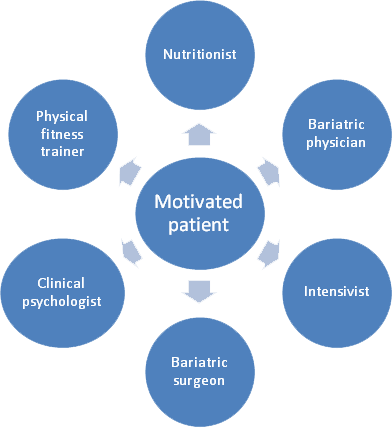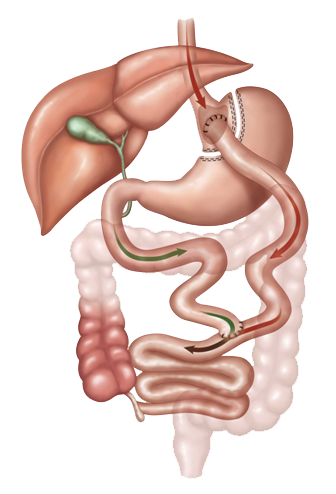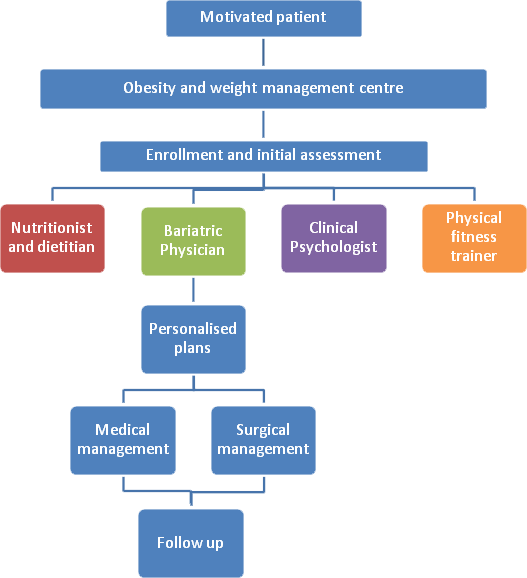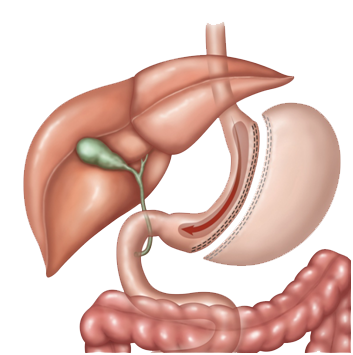Bariatrict Surgery Team
Obesity is a chronic disorder with multiple serious health complications. Previously it used to be a concern only for developed countries but now it is becoming a problem of developing countries as well. There is a global epidemic of obesity with prevalence as high as 30 to 40% in some regions. In India approximately 139 million people are obese (INDIAB study).
Obesity impairs quality of life and reduces life expectancy. All the effects and complications of obesity appear at lower body weight and at a younger age in Indians as compared to white population.
THE TEAM

EXPECTATIONS FROM PATIENT
THE WEIGHT MANAGEMENT TEAM UNDERTAKES….
ROLES
Physician
Intensivist
POSSIBLE SURGERIES
1.Roux-en-Y Gastric Bypass
A new small stomach pouch is created and the intestine is divided and joined to new stomach pouch, thereby bypassing part of the intestine

Positives
Faster weight loss, dumping (specifically if you eat high sugar meal), requires less outpatient follow up than the band, better effect on diabetes.
Negatives
Increased risk – clots (deep venous thrombosis and pulmonary embolism). Risk of leakage of internal joins where cuts have been made. Longer surgery than the band, longer hospital stay, longer off work, more pain, more vomiting for some (although some have little or no vomiting at all). Not everyone gets dumping. Procedure is more risky than the band. Patient needs more monitoring about vitamins and diet. Shouldn’t eat and drink at the same time. More chance of weight regain than with the band.
OBESITY PREDISPOSES TO
BENEFITS OF 5 TO 10% WEIGHT REDUCTION
Persons with out diabetes
Persons with diabetes
50% risk reduction for developing new onset diabetes
Reduction of the blood sugars by 30 to 50%
25% risk reduction for all cause death
10% reduction in total cholesterol
30% reduction in triglycerides
Reduction of requirement of oral diabetic drugs and insulin
40% reduction of risk of obesity related cancers
PROCESS FLOW CHART

Nutritionist
Clinical psychologist
Fitness instructor
Surgeon
2.Sleeve Gastrectomy

A new sausage shaped stomach is made, smaller than the original, but with no intestinal bypass. One of the newest operations. It can be done as the first part of another operation for larger people, or those with other high risk factors
Positives
Quicker, easier and less time in hospital.
Negatives
Less convincing longer term weight loss and no help in maintaining weight loss
